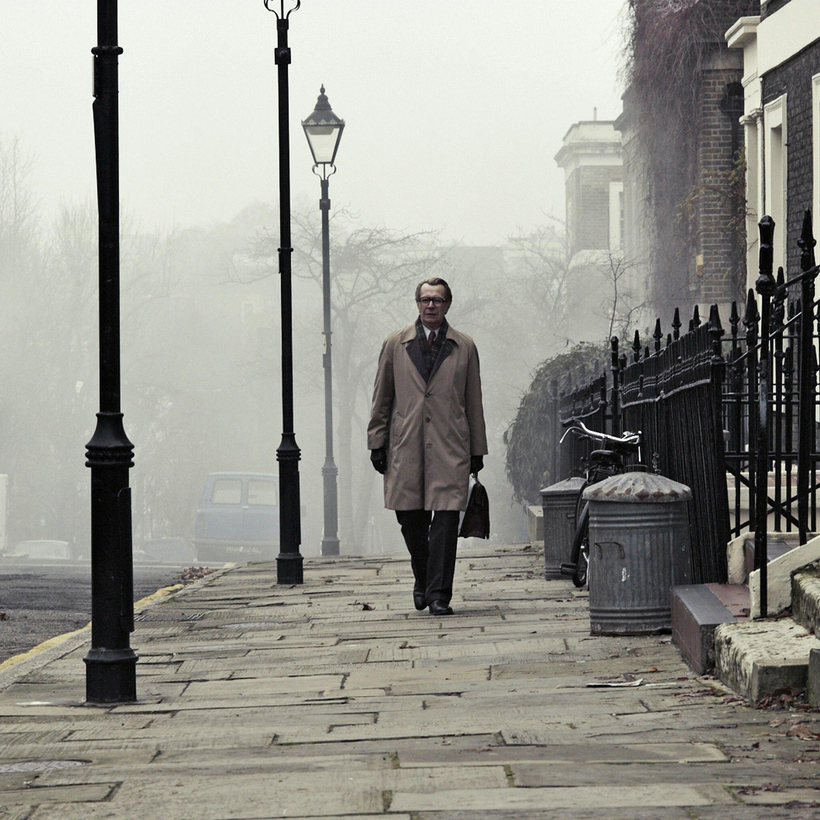John le Carré was the anguished poet laureate of post-imperial Britain in part because he inhabited Englishness as few Englishman ever could. With his Silver Shadow prose and Wilson Benesch ear—alert to the menace in every pleasantry—the man born as David Cornwell was in a class all his own when it came to reading the invisible ley lines of his homeland. He contained multitudes, and knew not to trust a single one of them.
Le Carré was, after all, the son of a con man who was bent on turning his son into a perfect English gentleman. The result was a man who savored both the All Souls Senior Common Room and the East End grifter as to the manner born. He could voice the ruling class, the rough back alleyways, and all the ways in which each preyed upon the other.
The youngest of his four sons, Nick Harkaway (born Nicholas Cornwell and the author of seven novels, two of them published under yet another pseudonym), was, by contrast, born to a rich and successful novelist. He clearly has his father’s intelligence, his confidence, even his looks, but it’s less evident that he could be on intimate terms with the anxieties—the constant sense of betrayal—that gave his old man’s work its commanding intensity.

When le Carré died, in December 2020, it fell quite naturally to his novelist son to oversee the publication of his father’s final novel, Silverview. Now, while expressing any number of reservations, the son is bringing out his first “John le Carré novel.” It’s not a crazy idea; unlike the eager acolytes who produce new Raymond Chandler or Ian Fleming works, this author has his predecessor’s DNA as well as an in-house schooling in the books, to go with his experience as a fluent author of thrillers.
When Karla’s Choice begins, a meaty Slavic hit man arrives on the doorstep of a rather dodgy, “not-so-literary” Hungarian agent in London, cries out that he’s received a “sign from God,” and confesses himself unable to go through with his murderous task. As in a Hollywood movie, George Smiley is called out of retirement to take on one final case—what have the Soviets got against a literary exile?—while his congenitally restless wife, Lady Ann, flies off alone to “the most glamorous party in the Alps.”
The date is 1963—classic le Carré Cold War territory (though nine years before Harkaway’s birth)—and all the familiar names (Haydon, Esterhase, Guillam, Control) are brought on to exchange clubland niceties while fingering their knives.
Harkaway writes with great worldliness and dash, and his sense of tradecraft is impressively convincing; he seems to know exactly where to acquire a fake passport. He catches not only how “the burning Victorian radiators hiss and whisper” along drab London corridors but all the miasma of a gray world in which anonymous men are forever tilting in the fog. Smiley resembles a “pudgy, middle-aged orphan” still polishing his glasses—though when we read of “water running down his cheeks,” we may wonder what’s happened to the man whose golden gift is his donnish air of self-possession.
Smiley’s predicament, as ever, is to be a decent man in a world without heroes—and one in which power left the room a few years ago. Harkaway diligently lards his sentences with references to “sin” and “absolution”—images of clerics are everywhere—though without the searching rage, let alone the clenched efficiency, of his father; when you read of a dubious hotel that resembles “a Baptist widow dressed by a well-meaning but much younger friend,” you may feel you’ve stumbled into a Chandler knockoff.
Harkaway’s deepest challenge, though, is that, as he notes in a brief foreword, his father’s works “were both a snapshot of the moment and window on the soul.” It’s the soul that’s missing here, and with it a Cold War that’s largely internal. Le Carré was a moralist and seeker hiding out within the well-cut suit of a Brit trained in skepticism. That division is what gives power and drive to the work, which lost none of its fury when the Soviet Union fell apart. Karla’s Choice is tightly and cleverly plotted, but as the car chases accelerate and we race toward a propulsive conclusion, we’re reminded that le Carré’s books were never about the action.
“Who do we find when we’ve pulled away the layers of disguise?,” a quasi-Smiley asks of a slippery protagonist in the final pages of le Carré’s final book. “Or were you ever only the sum of your disguises?” It’s hard not to hear in that the sound of an eternally conflicted writer cross-questioning himself. “Sometimes the whole of marriage was a cover story,” we read two pages later, as if anticipating the revelations of infidelity that have flooded out in the wake of the novelist’s death.
The new “John le Carré novel” is gripping and expert, clearly the work of a professional, but the one thing it’s not—and never could be, alas—is a John le Carré novel.
Pico Iyer is a columnist for Air Mail and the author of many books. His latest, Aflame: Learning from Silence, will be published in January


